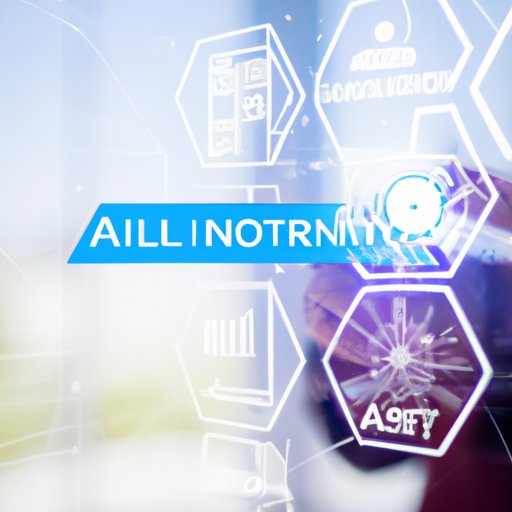Introduction
In recent years, advances in artificial intelligence (AI) have opened up a world of possibilities. From driving cars to diagnosing diseases, AI has become an integral part of modern life. But how exactly is AI good for humanity? In this article, we explore the various ways in which AI can benefit humanity, from reducing labor intensive jobs to increasing access to education.
Automation of Menial Tasks
One of the primary benefits of AI is its ability to automate menial tasks that would otherwise require manual labor. This automation can reduce the need for labor-intensive jobs, as machines can take on many of the tedious and repetitive tasks that humans are traditionally employed to do. As a result, people can focus their energy and resources on more meaningful tasks.
The automation of menial tasks also increases efficiency and productivity. By taking on mundane tasks, AI frees up time and resources that can be used elsewhere. This enables businesses to operate more efficiently and effectively, leading to increased profits.
Improved Health Care and Diagnosis
AI is also being used to improve health care and diagnosis. With its advanced pattern recognition capabilities, AI can detect subtle changes in medical data that may indicate the presence of a disease. This enables doctors to make more accurate diagnoses and develop more effective treatment plans.
AI is also being used to detect potential signs of cancer and other serious illnesses. By leveraging large datasets, AI can identify patterns in medical data that could indicate the presence of cancer or other diseases. This allows doctors to diagnose and treat diseases earlier, which can greatly improve patient outcomes.
Increasing Access to Education
AI can also be used to increase access to education. By leveraging AI-powered tutoring platforms, students can receive personalized instruction and feedback tailored to their individual needs. This can help them learn more effectively, leading to improved learning outcomes.
AI can also be used to create virtual classrooms, allowing students to access educational materials from anywhere in the world. This increases access to education and provides students with greater opportunities to learn.
Reducing Inequality
AI can also be used to reduce inequality. By leveraging data, AI can identify disparities in areas such as employment, housing, and healthcare. This information can then be used to develop policies and programs that can help to address these disparities.
AI can also be used to facilitate equal opportunity by providing access to services and resources that might otherwise not be available. For example, AI can be used to match job seekers with employers, thus providing individuals with access to better job opportunities.
More Accurate Predictive Analytics
AI can also be used to make more accurate predictions. By leveraging machine learning algorithms, AI can analyze large amounts of data and make predictions about future events. This can help businesses make better decisions and optimize their processes.
AI can also be used to predict customer behavior and preferences. By analyzing customer data, AI can provide insights into what customers are likely to buy and when they are likely to purchase it. This can enable businesses to optimize their marketing strategies and target the right customers at the right time.
Increased Productivity and Efficiency
AI can also be used to increase productivity and efficiency. By automating repetitive tasks, AI can save time and resources that can be used elsewhere. This can help businesses streamline their operations and get more work done in less time.
AI can also be used to optimize business processes. By leveraging data, AI can identify bottlenecks and inefficiencies in existing processes and suggest improvements. This can help businesses run more smoothly and efficiently.
Enhancing Security and Surveillance
Finally, AI can be used to enhance security and surveillance. By implementing advanced monitoring systems, businesses can prevent unauthorized access to sensitive data and protect against cyber attacks. AI can also be used to detect and respond to suspicious activity, helping to keep organizations secure.
AI can also be used to leverage AI-powered security solutions. These solutions can detect threats in real-time and take action to mitigate them, thus providing organizations with an additional layer of protection.
Conclusion
In conclusion, AI offers many benefits for humanity. From automating menial tasks to improving access to education, AI can help to improve our lives in many ways. It can also be used to reduce inequality and enhance security and surveillance. Ultimately, AI presents an exciting opportunity for us to create a better future for ourselves and for generations to come.
(Note: Is this article not meeting your expectations? Do you have knowledge or insights to share? Unlock new opportunities and expand your reach by joining our authors team. Click Registration to join us and share your expertise with our readers.)
